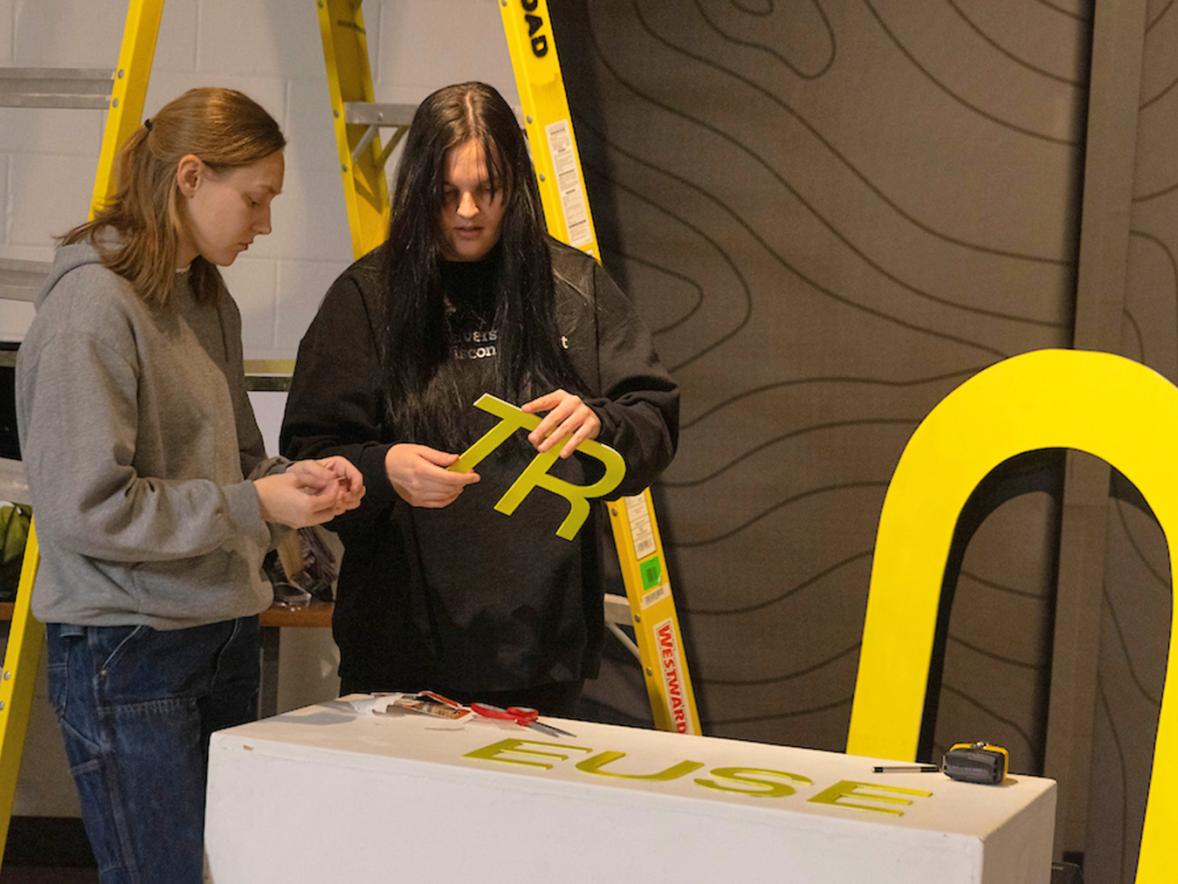Nine undergraduate students from eight universities across the country are working to improve the health of the Red Cedar watershed this summer.
Led by UW-Stout professors, LAKES REU students are collaborating across disciplines as they research pollution in the watershed caused by excess phosphorus and nitrogen that spurs annual blue-green algae blooms and dissolved oxygen levels. They seek to develop sustainable solutions with community and government partners, local citizens and policymakers.
Students and mentors are holding an open house from 5 to 8 p.m. on Thursday, Aug. 3, at the Raw Deal, 603 S. Broadway St., Menomonie. Students will present their research and invite community members to join them in conversations on challenges and opportunities within the watershed.
LAKES co-director Tina Lee, program director of applied social science, has been involved in the national grant-funded program, part of UW-Stout’s experiential learning and polytechnic mission, since its inception in 2014.
“Although students have their own projects and areas of focus, they work together to learn about each other’s disciplines, research methodologies and analyze data. Our final poster presentations are the main way we share with the larger community, and we are continually impressed by the number of folks who attend and their level of engagement,” Lee said.
This summer’s research will also be shared with local policymakers through reports, conversations and participation in the Red Cedar Water Quality Partnership in hopes of facilitating positive change in land use and water quality regulations and practices.
LAKES 2023 researchers
Mentors are environmental science Senior Lecturer Arthur Kneeland, co-director of LAKES; Professor Sarah Wood, program director of psychology; political science Associate Professor Kim Zagorski; and biology Assistant Professor Nicole Hayes.
LAKES REU 2023 students and their mentors are:
- Isabella Adamo, Virginia Polytechnic Institute and State University, Blacksburg, Va., Kneeland
- Ayers Aguiar, University of Maine-Farmington, Hayes
- Eva Bruce, Smith College, Northampton, Mass., Zagorski
- Genevieve Czaplewski, UW-Stout, Zagorski
- Sarah Gawlik, University of Houston, Wood
- Anja Huesby, UW-Stout, Wood
- Grace Parrott, Luther College, Decorah, Iowa, Hayes
- Josh Rosenstein, Middlebury College, Middlebury, Vt., Kneeland
- Katie Spreitzer, Arizona State University, Tempe, Ariz., Kneeland
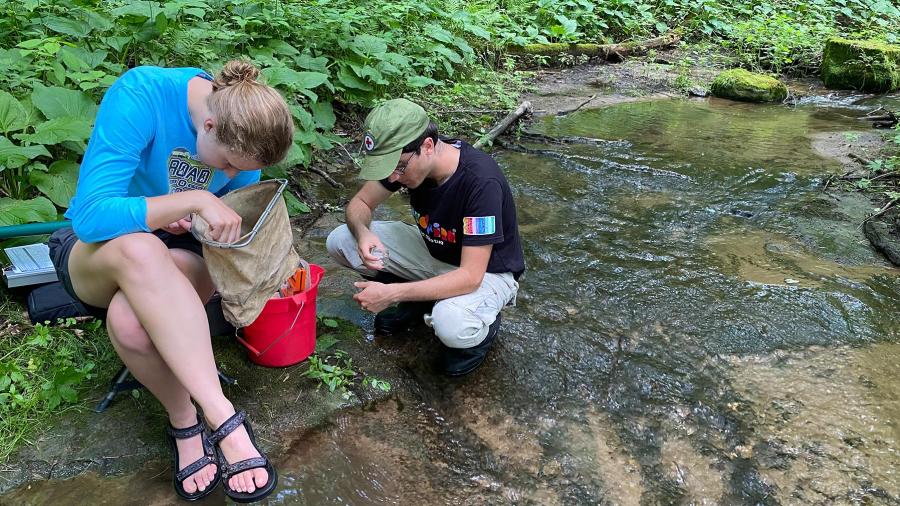
Psychology: Consumer identities and sustainability
Huesby, of Gordon, has wanted to help people with their health since she was a little girl. She is a psychology major with a self-designed concentration in community health and a minor in cultural anthropology.
She plans to earn her master's in clinical mental health counseling and certification in low-carb and ketogenic approaches to mental health to help people understand the connection between their metabolism and mental health.
LAKES has given her a deeper appreciation of the research process, teamwork, group communication and leadership. “The idea of participating in research used to be a daunting task, but now that I have participated in it, I have grown to love it,” Huesby said.
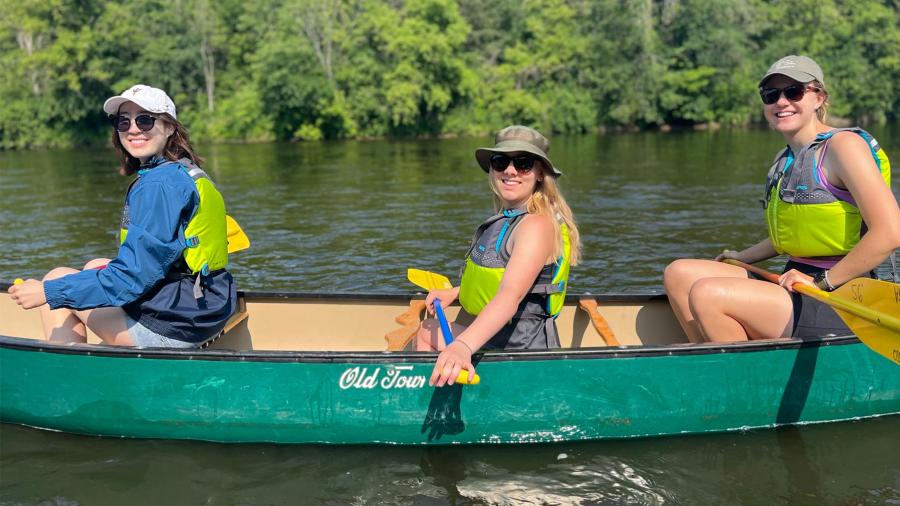
Huesby is researching the dynamics of consumer identities to see if people's food preferences and sense of sustainability align with their purchasing behaviors. She is investigating people's connections to their communities, local farmers and environment, and if this gives them a higher sense of responsibility to participate in reducing water pollution.
Gawlik is researching how farmers perceive the credibility of various sources of information about farming practices. They both sent anonymous surveys to citizens in Dunn and Barron counties.
“My hope is to use the data to help give farmers an understanding of consumer attitudes and behaviors so they can market their sustainable farming products in a way that is more appealing to consumer identities,” Huesby said.
Huesby thinks it is important to realize that no particular group is at fault for water pollution. “It is a vastly complex and multifaceted issue,” she said. “Individualizing responsibility is not very effective in terms of enacting sustainability. I hope everyone in our community attends the research presentation because water pollution affects all of us, and we need to work together to find a solution.”
Political science: Public trust in scientific institutions
Czaplewski is an applied social science major from Grand Island, Neb. With a fascination for political science, she chose the history and politics concentration and appreciates the hands-on research her degree program offers.
She is examining public trust in scientific institutions, like the Department of Natural Resources and public health departments, and how drinking water habits and perceptions of the safety of drinking water can be influenced.
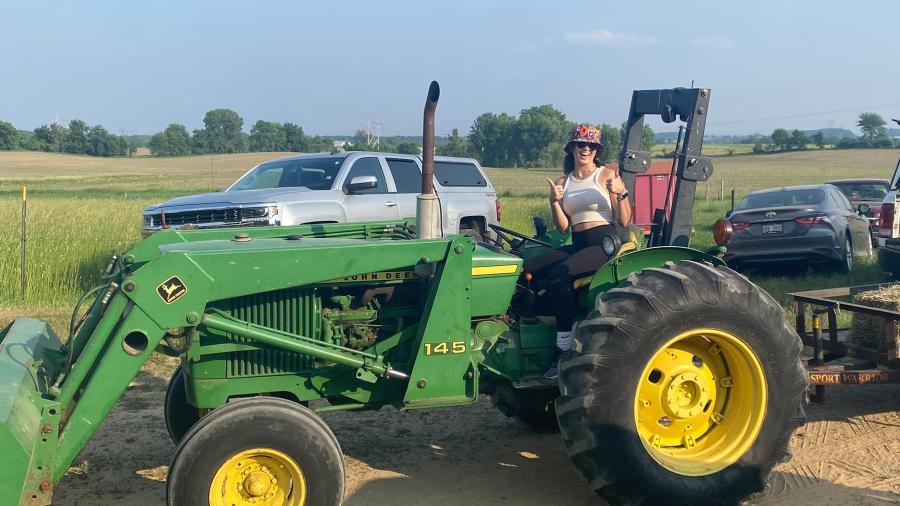
Bruce is looking at local government and the roles public support and partisanship play in making and enforcing water policy. They are both using public opinion data gathered from a survey they sent to community members in Dunn and Barron counties, and have conducted interviews with the public, as well as officials in Dunn County and the City of Menomonie.
“I hope that Genevieve and Eva gain a greater understanding of the complexities of policymaking at different levels of government, along with the challenges that arise when trying to combat large-scale environmental issues,” Zagorski said.
“For any institution to get anything done for the public good, it must be trusted by the people it serves. Without this trust, such actions cannot be implemented. In the context of an issue as important as drinking-water quality, it is imperative that the public trusts institutions looking to preserve it,” Czaplewski said.
“This research is being presented by students who truly care about their projects and residents’ questions. We all share a passion for this watershed, and being able to talk to community members about it is the heart and soul of this program,” she added.
Czaplewski plans to attend law school to earn her Juris Doctor degree. She believes her LAKES experience will serve her in her future career.
“The LAKES program is one rooted in interdisciplinary research,” she said. “The several fields that I have been able to work with have made me a more well-rounded student and researcher, as well as preparing me for the collaborative field of law.”
Czaplewski and Huesby will graduate in spring 2024.
Environmental science: Activism and identification
Adamo is researching plant species and photosynthesis in Lake Menomin by looking at the water column and dividing activity based on mass and chlorophyll present. She is gaining skills in aquatic plant identification, ecosystem monitoring and academic research.
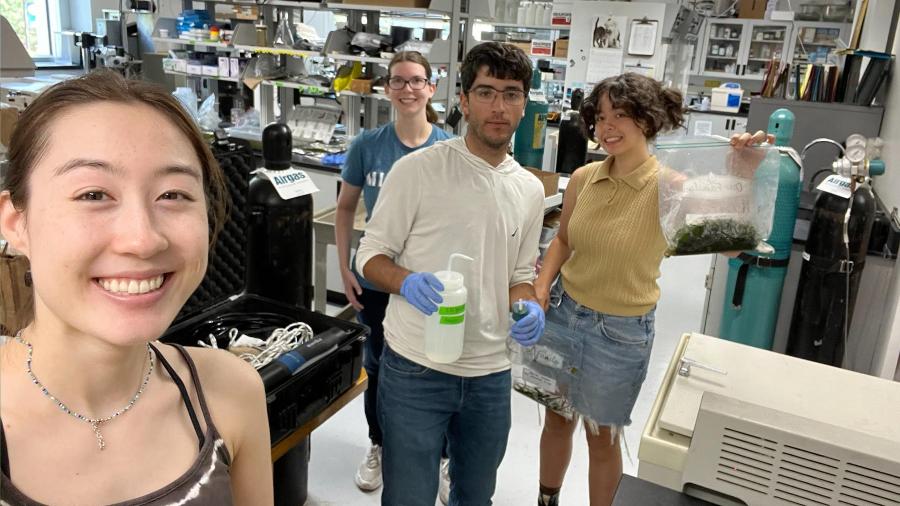
Rosenstein is looking at data sets to identify economic benefits of diversifying farm operations in Dunn County. Through research, specifically economic, he hopes to identify opportunities for win-win scenarios, where farmers benefit financially and the environment benefits through more sustainable practices.
Spreitzer is researching the relationships between consumer identity, community connectivity, and environmental activism and the complexity of socioeconomic issues in rural agricultural communities. She is collecting data by speaking with local business owners and company managers and through online and mail surveys.
Biology: Water quality of local lakes
Aguiar and Parrott are studying water quality in lakes Menomin and Tainter. Aguiar is surveying the lakes to determine if anatoxin, a neurotoxin that is produced by harmful cyanobacteria and is often implicated in dog deaths, is present. Parrott is looking at the distribution of harmful algal blooms and how it changes over the summer.
“They are gaining experience designing experiments, analyzing water quality samples in the lab, and collecting data that will be shared with public health and water quality agencies,” Hayes said.
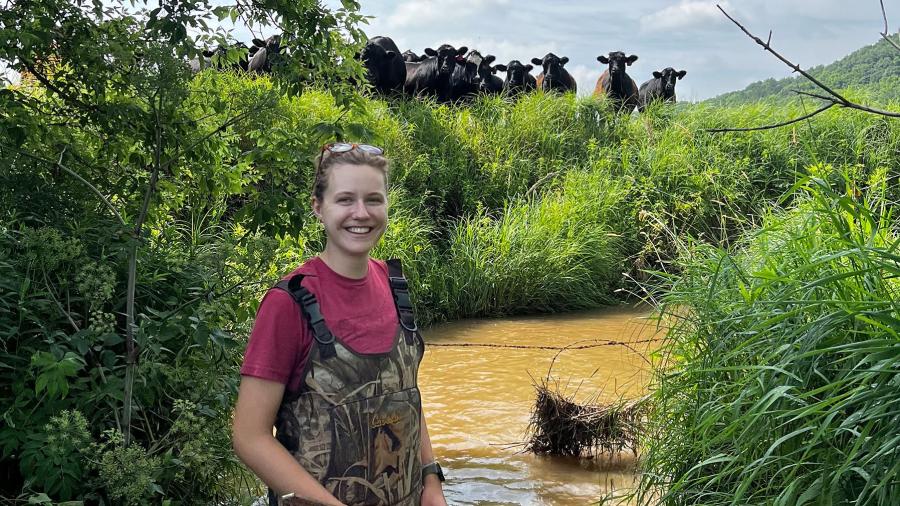
Faculty and students also share their experiences and discoveries in the LAKES REU Blog: The Good, the Bad, and the Algae.
LAKES REU is funded by the National Science Foundation and by the Freshwater Collaborative of Wisconsin, which works to enhance its water-related academic programs.
Students receive a $5,400 research stipend for the summer, as well as housing in UW-Stout’s residence halls, a $450 food allowance, up to $500 in travel reimbursement and funding support to travel to the National Conference on Undergraduate Research to present their final research findings.





